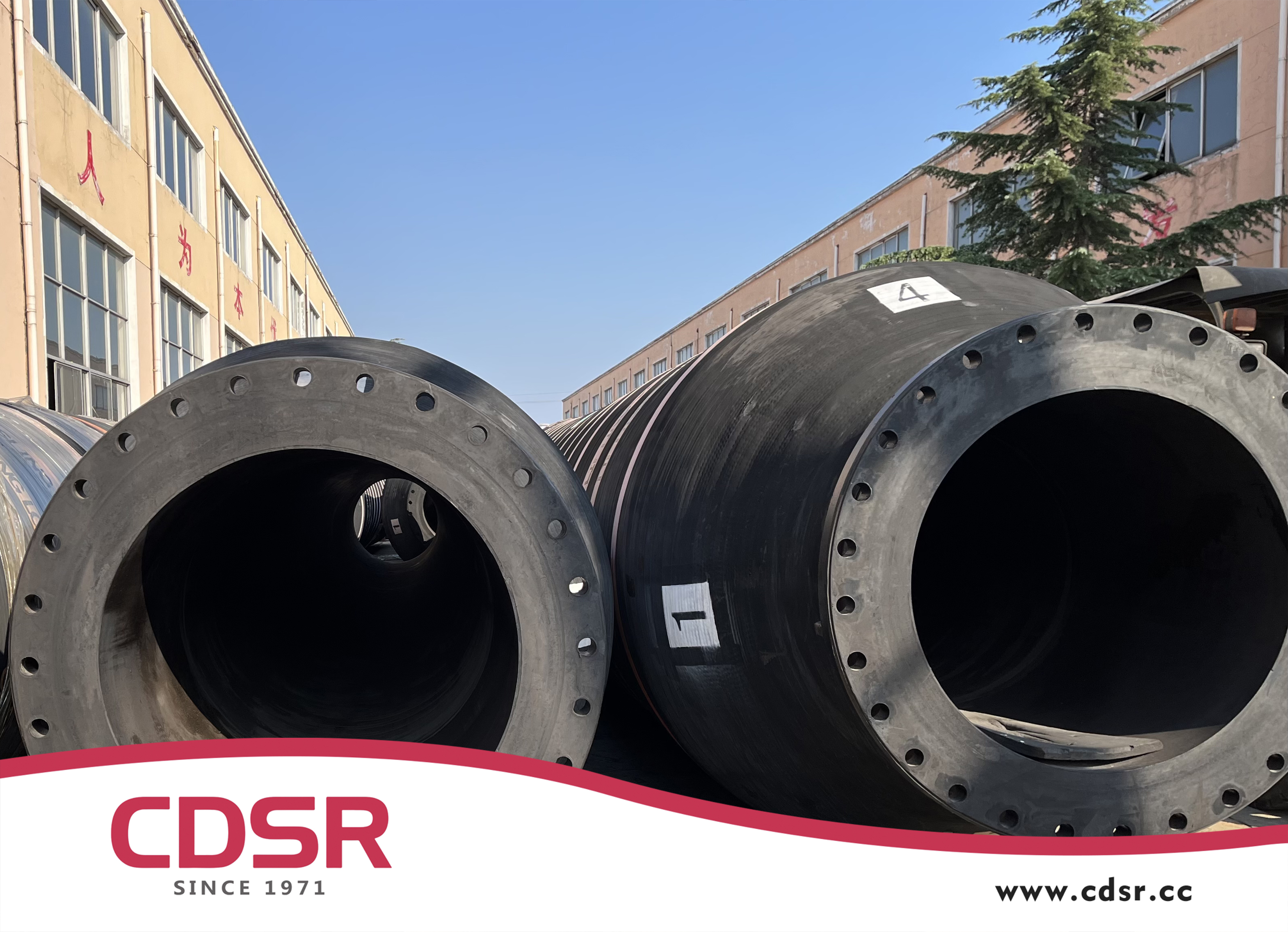Wkalo kay vulcanization?
Ang vulcanization nagtumong sa proseso sa kemikal nga reaksyon sa mga produkto sa goma (sama sa rubber hose) nga adunay mga vulcanizing agent (sama sa sulfur o sulfur oxides) ubos sa piho nga temperatura ug kondisyon sa panahon aron maporma ang usa ka cross-linked structure. Kini nga proseso naghan-ay pag-usab sa kemikal nga mga gapos tali sa mga molekula sa goma, nga naghimo sa goma nga mas lig-on, mas lig-on, ug naghatag niini og piho nga pisikal nga mga kabtangan.
Mga bentaha sa vulcanized rubber:
Tabang sa vulcanizationsang goma aron mapabilin ang orihinal nga porma niinisamtanghinungdaning ang goma nga mokunhodsa pagkupos. Ang proseso sa vulcanization nagpagahi sa goma, nga naghimo niini nga dili kaayo dali nga mabag-o. Kung itandi sa dili vulcanized nga goma, ang vulcanized nga goma adunay mga mosunud nga bentaha:
● Maayo kaayo nga elasticity
● Ubos nga pagsuyop sa tubig
● Taas nga oxidation resistance ug wear resistance
● Maayo kaayo nga electrical insulator
● Makasugakod sa mga organikong solvent

Hose Vulcanization
Ang vulcanization usa ka importante nga proseso nga sagad gigamit sa paghimo ug pag-ayo sa hose. Kini nga proseso naghatag og mas maayo nga pisikal nga mga kabtangan ug kalig-on sa hose.
● Bulkanisasyonpagporma
Pagkahumanbildingang goma nga hose, ibutang kini sa usa ka dako nga tangke sa bulkanisasyon sa alisngaw alang sa taas nga temperatura nga pagbulkan sa kainit, ug dayonmaporma ang hosehuman sa alisngaw nga bulkanisasyon ug pagpainit.
● Mas maayo nga performance
Ang kalig-on, pagkagahi ug pagsukol sa pagsul-ob sa goma mahimong mapauswag pinaagi sa vulcanization, nga himuon kini nga labi ka lig-on, pagkamaunat ug adunay mas maayo nga tensile, gisi ug pagsukol sa pagsul-ob.
● Dugang nga gitas-on sa kinabuhi
Ang goma nga hose maapektuhan sa lain-laing mga external nga mga butang sa panahon sa paggamit, sama sa oxygen, ozone, ultraviolet rays ug kemikal nga mga butang. Ang vulcanization mahimong usa ka layer sa dasok nga vulcanized nga goma sa ibabaw sa hose, nga makapauswag sa pagkatigulang nga pagsukol sa hose ug mapalugwayan ang kinabuhi sa serbisyo niini.
Mga panagana alang sa vulcanization
● Pagkontrol sa temperatura: Ang temperatura sa vulcanization kinahanglang kontrolahon sulod sa gitakda nga range, kung dili kini makaapekto sa kalidad ug kinabuhi sa serbisyo sa hose.
● Pagkontrol sa presyur: Ang usa ka piho nga presyur kinahanglan gamiton sa panahon sa bulkanisasyon aron masiguro ang kalidad ug kalig-on sa mga hose joints. Busa, gikinahanglan aron maseguro ang normal nga operasyon sa pressure control system saautoclave, ug sa pagmonitor ug pag-adjust sa pressure.
● Pagkontrol sa oras: Ang oras sa vulcanization kinahanglan kontrolahon sulod sa gitakda nga range. Kung kini mubo ra, kini hinungdan sa kabuspagpapilit, ug kung kini taas kaayo, kini makaapekto sa kahusayan sa produksiyon.
● Operating standards: Ang mga operator kinahanglan nga pamilyar sa operating procedures sa mga ekipo, ug operate sa husto nga paagi ingon nga gikinahanglan aron sa paglikay sa mga aksidente tungod sa dili husto nga operasyon.
● Proteksyon sa kaluwasan: Atol sa proseso sa pagbulkanisasyon, ang pagpanalipod sa kaluwasan kinahanglang tagdonto malikayan ang mga aksidente, mga pagbuto ug mga sunog. Sa parehas nga oras, ang bentilasyon ug mga lakang sa pagpanalipod kinahanglan himuon aron malikayan ang makadaot nga mga gas ug taas nga temperatura nga makaapekto sa mga operator.
Petsa: 01 Ago 2023





 中文
中文